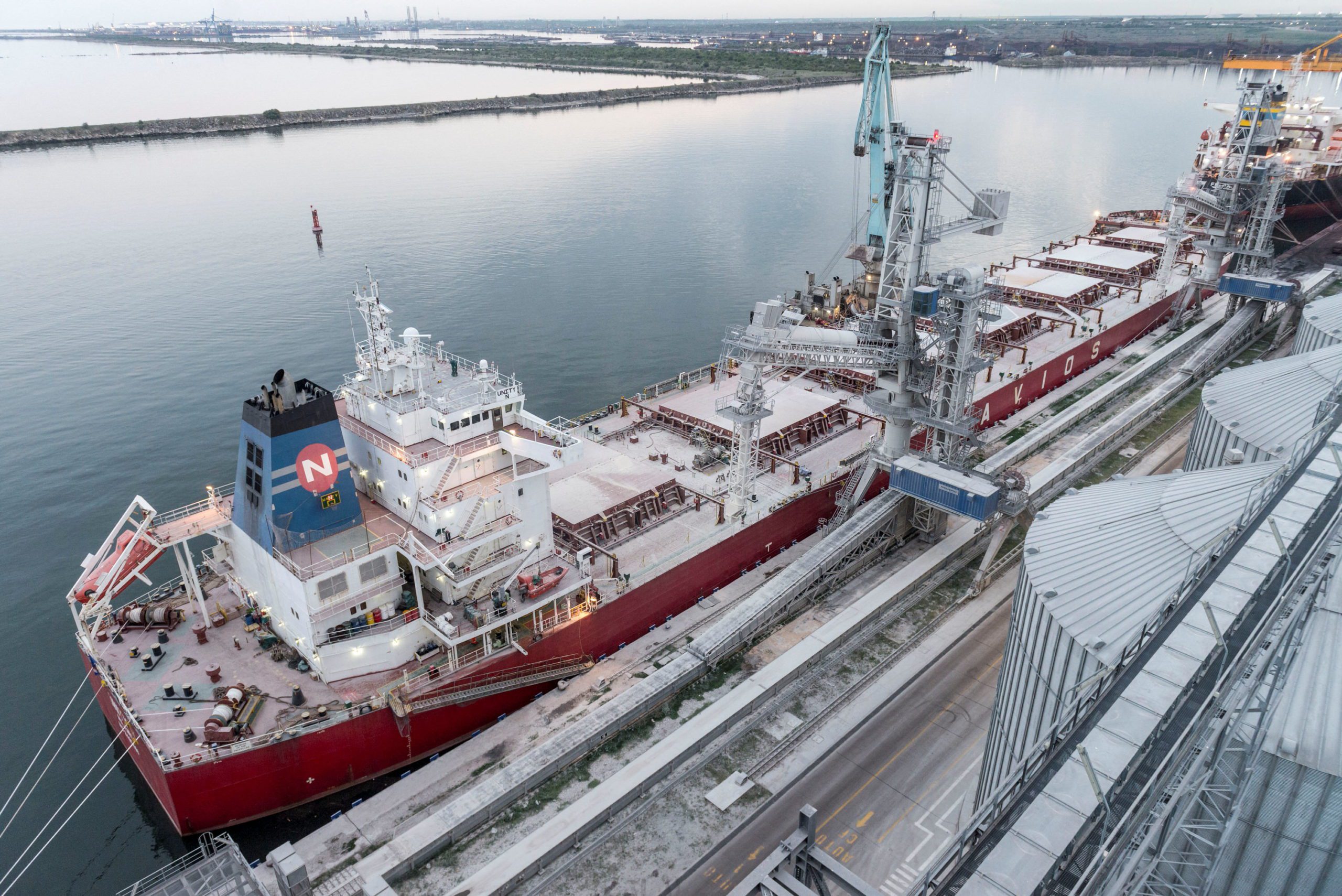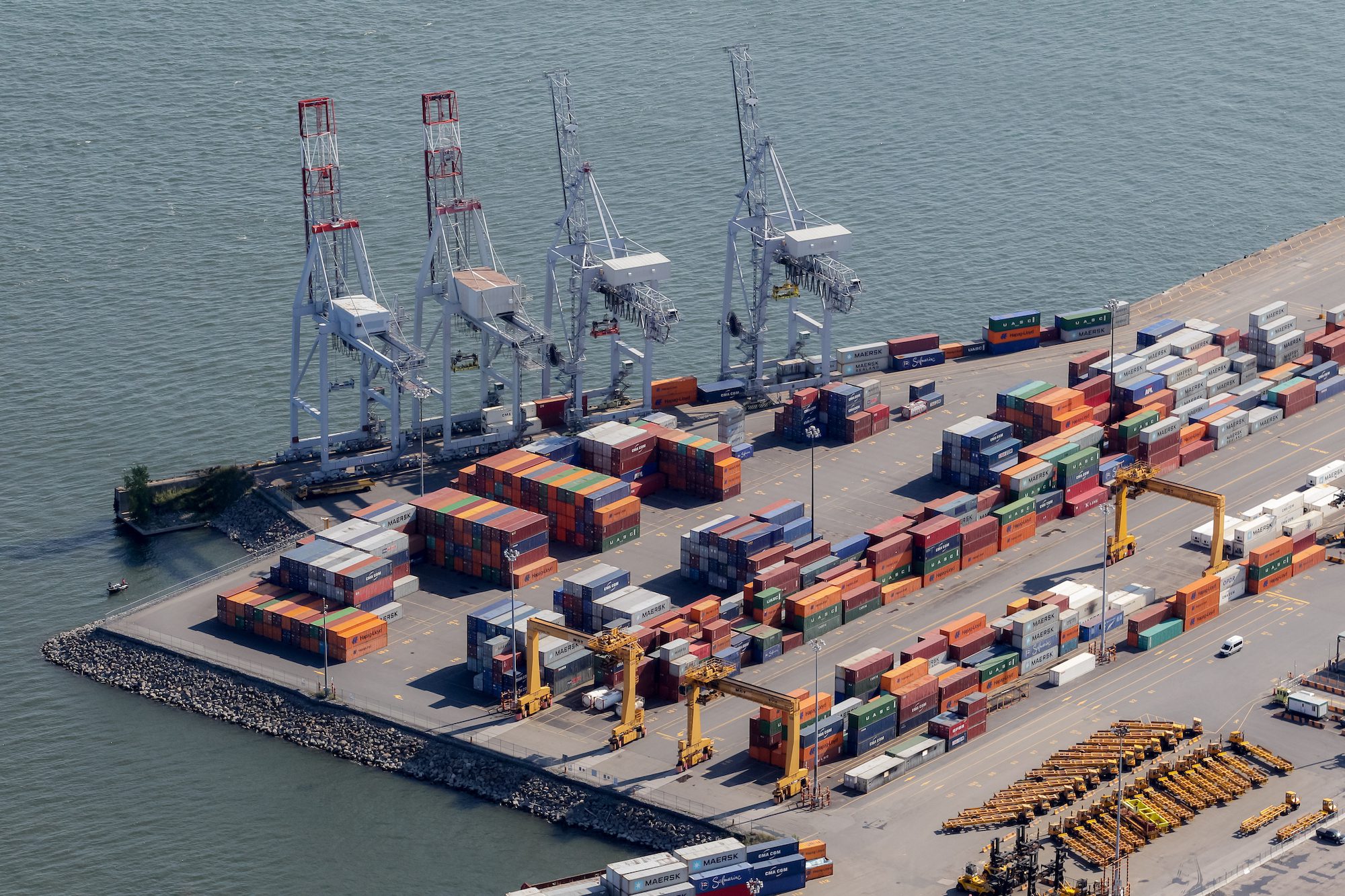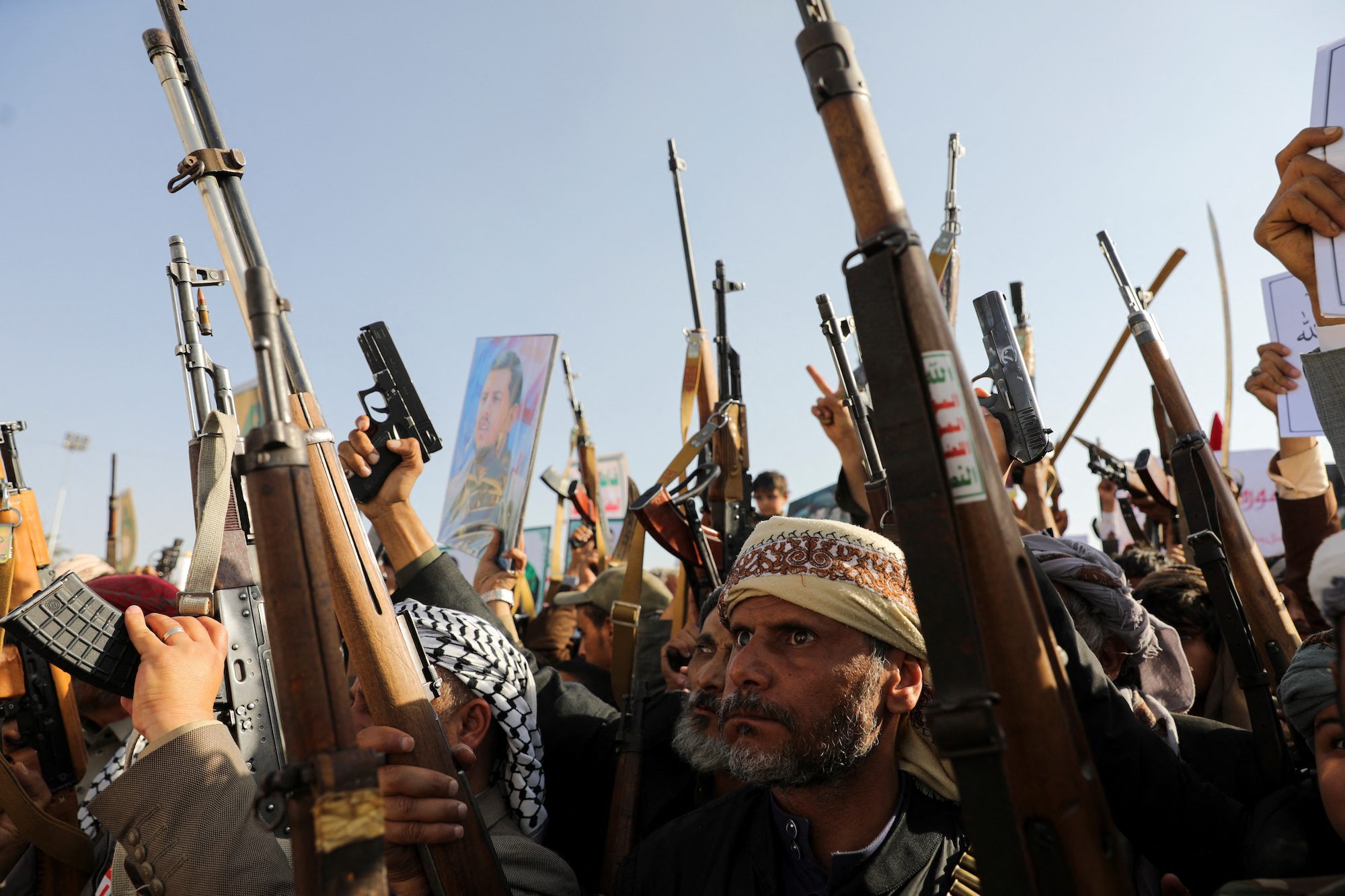By Pavel Polityuk (Reuters) Ukraine has sown about 7 million hectares of spring crops so far this year, or 25-30% less than in the corresponding period of 2021, and exported 1.090 million tonnes of grain in April, Agriculture Minister Mykola Solskyi said on Monday.
He underlined the importance of exports of Ukrainian grain via Romania while Russia is blockading Ukrainian ports, but said those exports could be complicated in two months by exports of the new wheat crop in Romania and Bulgaria.
“The sowing campaign is going on actively despite the difficulties associated primarily with logistics,” Solskyi told a news conference.
He said the sowing this year was not of the same quality as last year and that the sowing area for corn was smaller.
Also Read: The Black Sea Is The Next Front In The Ukraine War
Russia’s invasion of Ukraine in February has added to volatility in international financial markets, sending commodity prices higher and affecting logistics.
Ukraine had been the world’s fourth largest exporter of maize (corn) in the 2020/21 season and the number six wheat exporter, according to International Grains Council data.
Nearly 25 million tonnes of grains are stuck in Ukraine and unable to leave the country due to infrastructure challenges and blocked Black Sea ports, a U.N. food agency official said on Friday. Read full story
Ukrainian agriculture officials say the exportable surplus is around 12 million tonnes and analysts have said Ukraine’s currently large stocks will leave no room for storing the new harvest when it comes.
Also Read: First Ship With Ukrainian Corn Departs Romania
U.N. Secretary-General Antonio Guterres has said that the problem of global food security could not be solved without restoring Ukrainian agricultural production to the world market.
Repeating allegations that Russia has been stealing grain from Ukraine during the war, Solskyi said Ukraine regarded any ships carrying grain via the port of Sevastopol in the Crimea region to be stolen.
“Work is underway so that this stolen grain can be quickly seized,” he said, without giving details.
Russia, which annexed Crimea from Ukraine in 2014, has denied stealing Ukrainian grain.
Solskyi welcomed the “interest and understanding” shown by Romania over exports of Ukrainian grain and said Baltic ports looked the most attractive alternative.
Russian attacks on rail system fail to paralyze ‘lifeline of Ukraine’
A salvo of missiles brought the Kremlin’s war on Ukraine to Fastiv, a quiet town abounding with flowering cherry trees and set in sweeping farmland hundreds of kilometres from the front lines.
The strike on April 28, which injured two people, hit an electrical substation that feeds power to a confluence of railway lines that forms a key hub of networks linking central Europe, Russia, and Asia.
The damage quickly was repaired, said Ukrainian officials, and a Reuters visit last week revealed no lingering impact. Trains plied between Kyiv and the southern port of Odesa, disgorging passengers into the station at Fastiv, a town of 45,000 people 75 km (45 miles) south of the capital.
Officials said the attack was part of an escalating Russian assault on infrastructure, aimed in part at paralyzing rail deliveries of Western-supplied arms and also reinforcements sustaining Ukrainian forces fighting in the east and south.
So far, Moscow’s effort has failed, making state-owned Ukrainian Railways a leading symbol of the country’s resilience.
“The longest delay we’ve had has been less than an hour,” said Oleksandr Kamyshin, 37, a former investment banker who keeps the trains running as the CEO of the railways, Ukraine’s largest employer.
“They haven’t hit a single military train.”
The Russian defense ministry has said Ukrainian facilities powering the railways have been targeted by missile strikes because trains are used to deliver foreign arms to Ukrainian forces.
The rail system is being hit not just because it is critical to military supplies, Ukrainian officials said.
Moscow’s “goal is to destroy critical infrastructure as much as possible for military, economic and social reasons,” Deputy Infrastructure Minister Yuri Vaskov said in an interview.
With Russian warships blockading Black Sea ports, downed bridges and checkpoints obstructing roadways, and a fuel crunch snarling trucking, Ukraine’s 22,000 km (14,000 miles) of track are the main lifeline of the struggling economy and a passage to the outside world.
Trains have evacuated millions of civilians fleeing to safer parts of the country or abroad.
They have begun running small grain shipments to neighboring counties to circumvent Russia’s maritime blockade. Ukraine was the world’s fourth largest grain exporter in the 2020/21 season and exports disrupted by the war have interrupted global food chains and helped fuel worldwide inflation.
Internally, trains are distributing humanitarian aid and other cargoes. They enabled the restart of the AcelorMittal steel plant, in Kryvyi Rih, by bringing workers in and product out, said Kamyshin. They carry civilian casualties in hospital cars staffed by Doctors Without Borders.
Since Russia invaded on Feb. 24, he said, trains have distributed more than 140,000 tonnes of food and will have carried some 1 million kilos of mail for the state postal service by mid-May.
Russian attacks on some of the 1,000 stations have killed scores of civilians, including dozens killed in an attack in April in the station in the eastern city of Kramatorsk.
That has not deterred passengers.
Daily ridership has reached as many as 200,000 passengers, Kamyshin said in an interview on Saturday as he rode a train across a bridge that had been repaired after being badly damaged during Russia’s failed advance on Kyiv from the suburb of Irpin.
Nor have the railway’s 230,000 personnel stayed home even though 122 have been killed and 155 others wounded on the job and in their houses, said Kamyshin.
Moscow denies striking civilian targets in what it calls a “special military operation” to disarm Ukraine and rid it of what it calls anti-Russian nationalism fomented by the West. Ukraine and the West say Russia launched an unprovoked war of aggression.
Reuters was not able to independently verify the assertions of Kamyshin and other Ukrainian officials about their successes keeping the railways going in wartime.
UKRAINE’S ‘LIFELIFE’
Helena Muskrivska, 56, the Irpin station master, said she worked for the first four days of the Russian assault, helping evacuate some 1,000 people and relaying local developments by landline to Kyiv. She took documents and equipment home when it became too dangerous.
“I was here when the Russians came into the station. I didn’t want to see them face to face,” said Muskrivska.
A group of current and former U.S. and European railway executives formed the International Support Ukraine Rail Task Force in March to raise money for protective gear, first aid kits and financial aid for railway staff.
“There’s a lot of fundraising efforts everywhere for Ukraine, but none of it goes to the railroad,” said Jolene Molitoris, a former U.S. Federal Railroad Administration chief who chairs the group. “It is the lifeline of the country.”
The group also aims to fund purchases of heavy machinery, rails and other equipment sought by the railways.
Kamyshin said he is racing against the Russian attacks, deploying teams of workers and dispatchers around the clock to fix tracks and reroute trains. “It’s all about hours, not about days.”
He and top aides constantly move, taking trains to inspect damage and repairs around Ukraine, he said, adding: “Once they break it, we fix it”.
Kamyshin said his top priority is redirecting grain exports from Ukraine’s southern ports to Poland, Romania, and the Baltic states to help revive the economy. He said Russia would remain a threat even after what he called its inevitable defeat.
“This crazy neighbor will stay with us,” he said. “No one knows when they will come again.”
(Reporting by Pavel Polityuk, Editing by Timothy Heritage, Additional reporting by Pavel PolityukEditing by Frances Kerry Reuters)

 Join The Club
Join The Club











